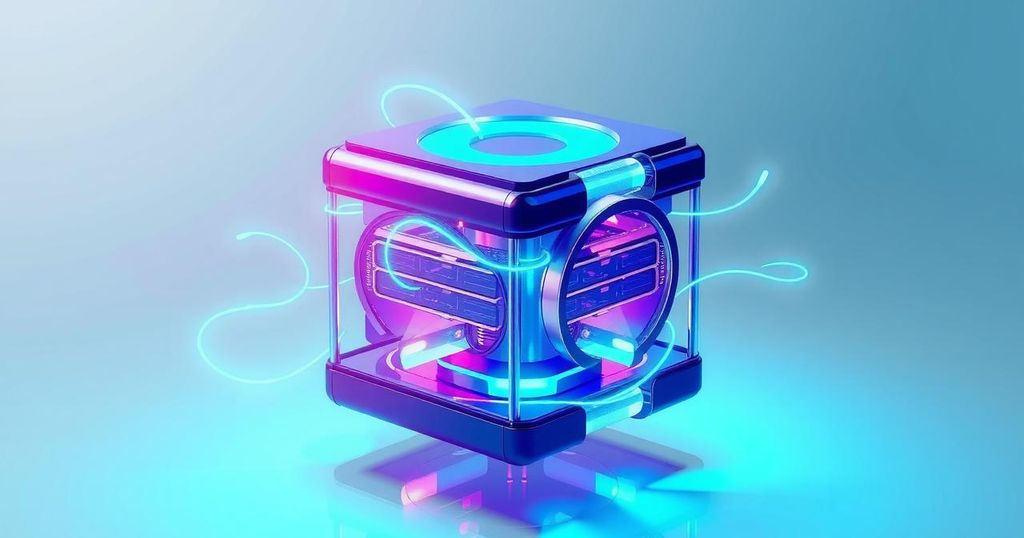The National Nuclear Energy Commission of Brazil (CNEN) is advancing a microreactor project to reduce reliance on diesel generators for energy in small cities and remote areas. The project, supported by Finep, involves IPEN’s research on materials and IEN’s assembly of a subcritical reactor. It aims to develop a low-power microreactor system, showcasing Brazil’s unique approach to nuclear technology through significant collaboration across institutions over a three-year project duration.
Brazil’s National Nuclear Energy Commission (CNEN) is advancing initiatives for microreactors aimed at diminishing reliance on diesel generators. This support aims to supply energy to smaller urban centers, healthcare facilities, and remote areas. The technology’s development will be spearheaded by CNEN’s technical units, including the Institute of Energy and Nuclear Research (IPEN) in São Paulo and the Institute of Nuclear Engineering (IEN) in Rio de Janeiro.
The project received approval from the Financier of Studies & Projects (Finep) and designates IPEN with researching basic materials used in the microreactor, while IEN will oversee the assembly of a subcritical reactor model. This subcritical model does not maintain a self-sustaining chain reaction, ensuring a safer development process.
IPEN’s focus will revolve around the production of essential materials, including moderators like beryllium oxide and graphite, as well as control rods made from boron carbide. The institute aims to achieve domestic production capabilities, ensuring a stable supply of these critical materials while also exploring the potential creation of nuclear fuel, particularly uranium dioxide (UO2).
Researcher Jesualdo Luiz Rossi emphasized the project’s dedication to examining various moderators, particularly beryllium oxide, an area of past expertise at IPEN. Rossi remarked on the opportunity to rekindle technical knowledge previously lost, as IPEN will establish a new lab to safely handle toxic powders and facilitate larger-scale production.
Concurrently, IEN aims to continue the research initiated in the 1970s on the subcritical unit project, which resumed in 2018. Francisco Jose de Oliveira Ferreira, head of the Nuclear Engineering Division at IEN, stated that existing studies and most necessary equipment are available for the unit’s assembly. The institute will validate neutron behavior in the reactor through experimental data, contributing significantly to instrumentation.
The project, titled “Development and testing of critical technologies applicable to nuclear microreactors,” is supported by the Finep More Innovation program, with a budget of BRL 50 million ($8.8 million), including BRL 30 million from Finep. Leadership of the proposal is in the hands of Diamante Geração de Energia, INB, and Terminus Pesquisa e Desenvolvimento em Energia, along with collaboration from several universities and technological institutes.
Throughout its three-year duration, the project will validate the feasibility of a low-power nuclear microreactor capable of producing 3 MWe housed within a 40-foot container. This reactor is intended to be remotely operated for over a decade without refueling, forming a crucial part of Brazil’s energy strategy. CNEN noted the originality of Brazil’s approach, contrasting with similar foreign projects that rely on adapting existing technologies.
Project technical coordinator Professor Joao Moreira from UFABC stressed the novelty of the microreactor being developed, stating that it builds upon national competencies rather than existing global technologies. Furthermore, project coordinator Adolfo Braid expressed confidence in IPEN’s fundamental role as new demands evolve within the project, leveraging its historical collaboration with the Navy and industry.
The project encompasses the manufacturing of critical microreactor components, including the core, reflector, and a passive heat transfer system using heat pipes. Innovative engineering solutions are requisite for the heat pipes, with institutions involved actively exploring their feasibility to ensure reliability. Currently, the project is positioned at TRL 3, progressing towards TRL 6 for practical application validation.
To facilitate these developments, four Technology Development Units will be instituted for crucial testing and operational assessments. CNEN anticipates challenges in managing this extensive project, particularly coordinating various research institutions across the nation. Therefore, they plan to implement specialized management software for real-time task updates and improved planning efficiency.
Brazil’s microreactor project, spearheaded by CNEN and supported by IPEN and IEN, aims to innovate energy solutions to reduce diesel generator dependency. By focusing on domestic production of reactor materials and exploring cutting-edge nuclear technology, Brazil seeks to provide sustainable energy solutions. The project demonstrates significant collaborative effort among various institutions, with ambitious plans to establish a unique microreactor system by leveraging historical expertise and advancing towards practical application.
Original Source: www.neimagazine.com






